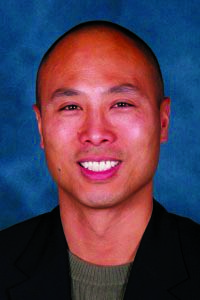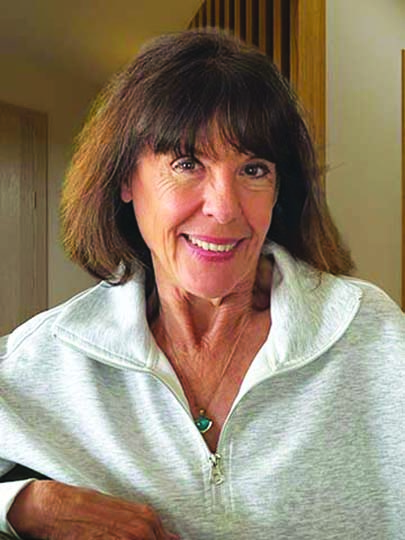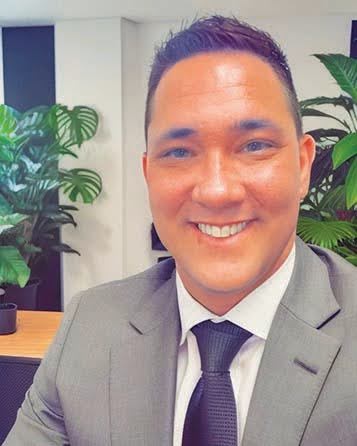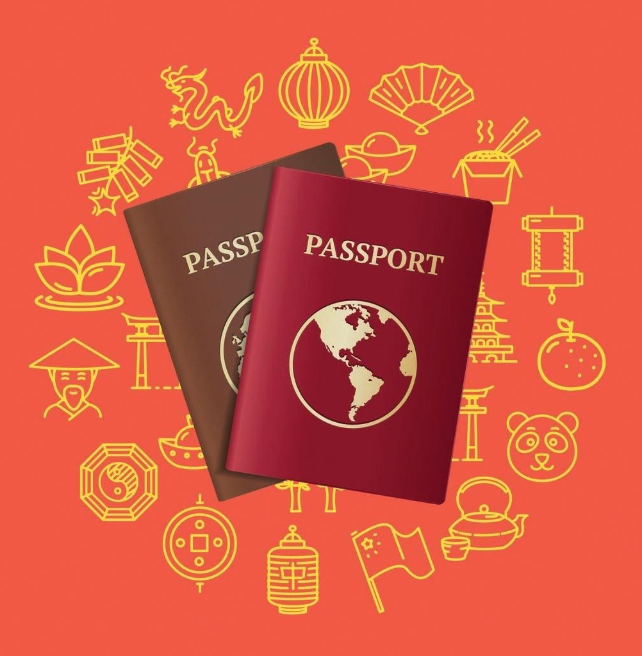“When it comes to Asian people, our lives,
families, and cultures revolve around some aspect of shame. Our identities are forged by trying to avoid any shame-producing feelings.”
By Sam Louie, MA, LMHC
As a first-generation immigrant in this country, my identity and those like me is nuanced. Yes we are “Americans” but with cultural and ancestral ties elsewhere. Not just elsewhere in a vague way, like, “Well, I think I’m a mix of Irish and Scottish,” but in a very tangible and direct link to my ethnic heritage, immigration story, along with the language, customs, and worldviews passed down through the generations.
Our identities are intertwined to the country we live in, our country of origin, those of our colonizers, or a combination of those. The external pressure of assimilation has been one where I’ve been asked to strip myself of my past understanding of self, and prove my allegiance to this country by simplifying my identity as one of just, “American.” The implicit mainstream message was the pathway to citizenship, acculturation, and acceptance in this country was the adoption of patriotism to the degree that the only color accepted was red, white, and blue oozing out of my pores. But in doing so, I betrayed what it truly means to be American in my eyes, while also betraying my ancestral roots.
Chinese Immigrants from Hong Kong
Hong Kong was once home for my ancestors, parents, me and two younger brothers. We are ethnically Chinese — more specifically Cantonese-speaking. Mandarin is the official language of Mainland Chinese and Cantonese is the second largest dialect spoken primarily in cities like Hong Kong, Macau, and parts of Southeastern China.
Another major cultural influence is that Hong Kong was a British colony from 1842 until the handover back to China in 1997. This meant more than 150 years of British influence in spheres such as politics, fashion, architecture, and language (English is also an official language in Hong Kong).
My early identity and roots were of both British and Chinese influences. I recall the juxtaposition of British double-decker buses with traditional Chinese fishing boats known as “junks”. I still have hazy memories of our British passports to mark our distinction as Chinese with British citizenship. Even before setting foot in America I was ethnically Chinese, but legally British. My young mind couldn’t make sense of it all and thought it was “cool” I could be both Chinese and British.
Oldest Son Syndrome
My grandparents on my dad’s side were in an arranged marriage. They had no choice in their partnership — and it showed. Issues of domestic violence, gambling and strife plagued their relationship and impacted my father and my uncles and aunt.
My father is the oldest son of seven children. When my grandfather abandoned the family and moved from Hong Kong to Australia, my dad was tasked to work to help support the family. He dropped out of school in junior high and began his apprenticeship in the kitchen of various Chinese restaurants.
Along the way, he met a waitress who would become his wife (our mother) while working together at one of these restaurants. By age 30, my father had risen to the rank of chef and was making a name in the culinary world. Yet, with three toddlers in tow, his individual aspirations were set aside for the collective desires of the family. My parents wanted a better opportunity for us. Neither of them had much of a public school education and came from blue-collar families. So one fateful day in the summer of 1976, everyone on my dad’s side, packed a suitcase full of belongings and we flew to Seattle, Washington to start life anew.
Coming to America
My parents were part of the dominant culture in Hong Kong. Cantonese-speaking Chinese made up more than 90% of the population. They only knew how to be a majority and to view life through a prism of ethnic and cultural privilege. When they arrived in Seattle, they were not only immigrants to a new land, but an ethnic minority popularized in Hollywood as strange, exotic, and foreign.
Beyond the cultural shock of adjusting to a new language and customs, they were stripped of the status of being part of the majority. Not only were they known as Chinese immigrants, they were also a minority living within a Black minority culture.
While some Asian immigrants struggle to fit into white, suburban communities, we had to navigate our ways through three worldviews: White America, Black America, and our own Chinese culture at home. Not only are were we trying to understanding what it means to be a member of White America in general, we had to adapt to the nuances of living within Black culture while trying to honor our own ethnic heritage and history.
America is often romanticized as a destination for immigrants, yet the harsh reality of cultural shock is often overlooked. My parents were in their late 20’s with no understanding of English, American customs, or a support network. The values of Asian collectivism in which they tried to impress upon us as their children clashed with American ideals of independence. We went from being ethnic majorities in Hong Kong to ethnic minorities in America. How would that impact our sense of identity and shape how others viewed us and how we saw ourselves?
Asian Shame and Honor
To understand Asians, you need to understand the principle of cultural shame and its underlying impact on those from Asian backgrounds. This concept of shame is what undergirds Asian societies, families, and individuals. When it comes to Asian people, our lives, families, and cultures revolve around some aspect of shame. Our identities are forged by trying to avoid any shame-producing feelings.
Unlike the U.S., which prides itself on the individual or “I” factor, Asian nations are collectivist with “we” being exalted. As a result, Asian societies are often referred to as “shame-based” cultures where social order is maintained through the use of shame.
Shame and honor are tied together in Asian culture. It’s the yin and the yang of life. They co-exist together to bring harmony, cohesion, and order in Asian countries. Honor and upholding honor is paramount. You learn honor early on from your parents. Everything we do is predicated on bringing honor to our families: our grades, achievements, careers, and our relationships.
Growing up in a traditional Chinese household, I learned how important the family name is to Asian cultures. Chinese names are written in three characters, with your last name written first. My Chinese name is translated as Louie, Fu Yuen. As a child, when people asked what my Chinese name is that’s how I answered in Cantonese (Louie, Fu Yuen). In Asia, when you first meet someone they’ll ask you what your family name is. I would say I’m a Louie and they would respond with their own family name, so we can get a sense of who we are based on our family lineage and reputation. Consequently as a “Louie”, my loyalty and allegiance belonged to the family. It was not about my individual desires or wishes, rather my focus was to be on the family. What I do in this life isn’t so much about me but about bringing and preserving honor to my family and Chinese heritage.
As the oldest son, this sense of obligation and responsibility to bring honor to the family was even stronger. I was responsible to pass this sense of honor down to the future generations. When I stepped out into the American world of education, career, or marriage, I felt the weight of my culture following me along.
Because of the Asian fixation on honor, we learn early on to achieve as a means to “save face”. “Face” is the equivalent of how one is seen or judged by another in the Asian culture. When people talk about how Asian cultures are shame-based, they’re referring to the concern one has for what others think about them and their “face”.
It should be noted the Chinese character or kanji, for “face” is the same character for “mask”. Following this line of thinking, where your face is known as your mask, it’s no wonder why traditional Asian people will do whatever it takes to hide their emotions or true “face” by putting on their “mask”. Since “saving face” is seen as bringing honor to oneself and culture, then hiding one’s true feelings also carries a degree of honor. The outward display of emotions is shunned since that would be seen as losing face by showing your true self. For many Asians, they will do everything in their willpower to never show any negative emotions or feelings for fear of losing face. Anger, disappointment, sadness, and fear were never expressed or condoned in my family. As a result, we unconsciously learn to associate these emotions as shameful. In a strange and twisted way, becoming authentic to our human experience and emotions is internalized as being “bad”.
When we go through experiences that are not honorable or proud for our families, what then? When you feel you’ve let down not only yourself, but also your family, ancestors, and entire culture, and can’t talk about them, it inevitably leads to toxic shame. This is a shame that seeps into our veins and courses through our very being. This deep sense of rejection, humiliation, failure and embarrassment penetrates our core and robs us of life. We come to view our entire self as flawed, defective, unworthy, and ultimately unlovable.
Secrecy, Silence and Shame
As an Asian-American stepping out into the world of education, career, or marriage, the weight of my culture followed me along with the expectation and obligation to bring honor to my family and my ancestral roots. Anything less would be seen as dishonorable or a loss of “face”. If someone has “lost face”, there’s deep feeling of humiliation, embarrassment for letting down yourself, family, and culture.
When it comes to addictions, there is scant attention given to Asians. Part of the limited attention lies in the age-old, Asian custom of secrecy, silence, and shame. We try not to disgrace our families or ethnic heritage so we strive to do everything within our being to bring honor to our family and ancestors. It’s so strong that when Asians struggle with life issues (i.e. grief, depression, physical or sexual abuse, anxiety, etc.) many never seek help out of a fear of appearing weak. At a young age, we’re indoctrinated to be strong and not show any signs of weakness. Feeling weak or even a need for help will trigger intense feelings of shame. From an Asian addict’s perspective, it’s the ultimate blow of humiliation to be weak. It’s the most difficult admission to our selves, families, and loved ones that we are weak and cannot solve our problems alone. Imagine being Asian and trying to break free of an addiction. Whether it’s gambling, drugs or alcohol, or sex, many would rather “suffer in silence” than break the cultural code of honor by acknowledging a problem and seeking help.
When it comes to Sex Addiction
The grip of shame is even tighter for those embroiled in sex addiction. When it comes to sex, no other area is more misunderstood or shame-bound than this realm. Our sexuality strikes at the core of our humanity and cannot be cut off. Yet the tension and shame arise when you are trapped in sexual obsessions or compulsions. Whether it’s a one-night stand, multiple affairs, visits to strip clubs, pornography, or the use of prostitutes, the combined feelings of dirtiness, defectiveness, and weakness all race to the forefront ensnaring the Asian addict to see himself as unlovable, worthless, and ultimately a failure to not only himself but his family and ethnicity. I not only studied Asian shame and addiction, I lived it. As a young child growing up in a home with language and cultural barriers to connect with our parents, I sought solace in activities and objects.
Bereft of emotional intimacy, I spent endless hours of trying to fill the void in my heart by playing basketball, video games, watching television or browsing department store catalogs. During my young adult years, I confused sex with love. By college, this distortion took the form of one-night stands, self-masturbation, and if I was in a relationship, they were short-term and primarily sexual in nature.
This misunderstanding continued after college and escalated as the cultural pressure to honor my family as an “American success story” took firm hold. As I launched into the profession of television journalism, the fear of failure and inadequacy took center stage. It was further heightened as I moved away from Seattle for the first time and lived in Montana. I was living alone more than 500 miles away from home. I was lonely and wracked with insecurity and questioned my abilities.
It was also the first time I experienced so many bewildering emotions: fear, inadequacy, and culture shock. I was the only Asian guy I knew in the city, or the state for that matter. I wondered to myself, “What if I don’t succeed in this career? Will my parents or friends accept me or reject me and want nothing to do with me?” I reasoned to myself that failing was not an option. The fear and potential shame of bringing dishonor on myself, family, grandparents, and ancestors weighed heavily on my conscience. I had to succeed. As an Asian-American male, I was also fighting stereotypes that we were nerdy and sexually undesirable to say the least.
The anxiety that fueled these questions, doubts, and concerns swirled through my being. Even if I had wanted to talk about it, communication with home wasn’t an option. This was before the age of e-mail and cell phones. My isolation sealed my distorted belief that, much like during my childhood, I could not truly trust anyone in my deepest time of need. I would have to tackle these adult challenges alone.
All these social, cultural, and personal factors created a perfect storm where sex became the salve for my soul. Sex was anything sexually stimulating. While it included one-night stands, it primarily consisted of pornography purchased at adult bookstores. Every day after work, I remember using it to quell my fears and sense of isolation. With the internet, my usage escalated as it was now much more accessible and anonymous. The ritualized nature of going to porn before I went to bed set in motion the tentacles of addiction. By the time I had met my first wife in Ohio, she had no idea I was shrouded in sexual secrecy and shame. Even after three years of marriage, I hid the shame of my addiction from her until the night of discovery.
“Thank God I’m Caught!”
One night while I was caught in my usual trance of browsing through nude images online, she woke up to use the restroom. She peered into the living room and saw me looking at porn on the computer. A loud shriek of disgust pierced the silence of the night. I was shaking as I felt exposed, helpless, alone, and afraid; a whirlwind of mixed feelings coursed through me. I intuitively knew my marriage was in jeopardy, yet there was also a huge sigh of relief. “Thank God!” I thought. I was relieved she had caught me, as I was tired of living my double life. Finally someone knew my secret.
Despite my terror, I also felt a sense of peace as the years of guilt, shame, and silence came to light. A tremendous burden had been lifted; I could not hide behind denial or rationalizations. I had to acknowledge to her and to myself that the tentacles of lust, infatuation, and pornography had strangled all the intimacy in our marriage.
The feelings of loss, abandonment, and shame associated with my divorce under these circumstances were excruciating. How could this happen to me? Nothing was more important to me than my marriage; not my career, family, or relationship with God. Nothing was more important than my desire to uphold the Asian honor of a good marriage.
The cultural shame was compounded by religious shame. I belonged to an Asian-American church. Everything that I believed in about a Christian marriage had disintegrated in front of my eyes. How could this happen when we were Christians? Disillusionment with my faith quickly set in. I felt like a failure not just to myself, but to others. I felt like a failure in the eyes of my immediate family, grandparents, deceased ancestors, church, and the Asian community at large. The stigma within my culture of both the divorce and the addiction pierced my soul. How had this happened? How could I be so weak? God must hate me.
A Shattered Dream
It was long after the discovery that my wife at the time filed for divorce. After years of suffering in silence, I finally acknowledged to myself and others, I was addicted to sex (i.e. pornography, prostitutes, sexual fantasies, etc.).
Everything I had worked so hard to achieve was gone. I experienced a shattered dream, not just an individual dream but also the collective dream of my parents and grandparents. Insecurities and fears exploded and swirled inside me when my personal and professional life collapsed. The emotions paralyzed me. The gut-wrenching fear of being rejected had been realized. I was tormented beyond belief. I had lost more than a marriage. I thought I had lost the meaning to life because I had lost the honor of my family. The shame of letting down my family, my community, and my ancestors was palpable. It was a shame that wracked my soul.
Life Through a New Lens
But the blessing from my divorce is that it forced me to acknowledge the pain within while working on issues related to my sex addiction: childhood abandonment, emotional neglect, Asian shame, and other cultural forces at play that impacted my dysfunctional thoughts and behaviors. Eventually through my own time in therapy, I emerged with a new lens from which to see life. The dark shadow of sexual shame and secrecy had been lifted which spurred me into my career as a therapist specializing in Asian shame, sexual addictions and recovery.
It’s ironic how as a first-generation Chinese immigrant, I was indoctrinated to bring honor to my family and ancestry while chasing the American dream. But it wasn’t until that dream of success, perfection, and independence was obliterated that I had the courage to delve deep into my own cultural wounds of Asian shame and addiction. Only then was I able to find what I was looking for in life: meaning, passion, love, and the joy of experiencing intimacy with God and my fellow man.
I no longer see my faults as bringing shame to my culture, family, or me. Instead, my faults are a chance to showcase unconditional love and grace to others so they can glimpse the glory of their trials, failures, and disappointments. Despite my struggles and challenges as an immigrant to this country, they have also been the greatest opportunities of spiritual growth, healing, and self-discovery. My takeaway through this journey is that my past imperfection is now my greatest gift to the world.
About the Author
Sam Louie is a licensed mental health counselor with a private practice in near Seattle specializing in cultural issues, sex addiction and trauma. Prior to counseling, Sam worked more than twelve years as an Emmy Award-Winning television journalist where he researched, produced, and reported on a number of stories related to psychotherapy, relationships, and addictions.

He has also written, Asian Shame & Addiction: Suffering in Silence that touches on the themes of Asian culture and addictions. His book and counseling practice information can be found on Amazon or his website at www.samlouiemft.com.Sam Louie, MA, LMHC. www.samlouiespeaks.com
(206) 778-2686



































